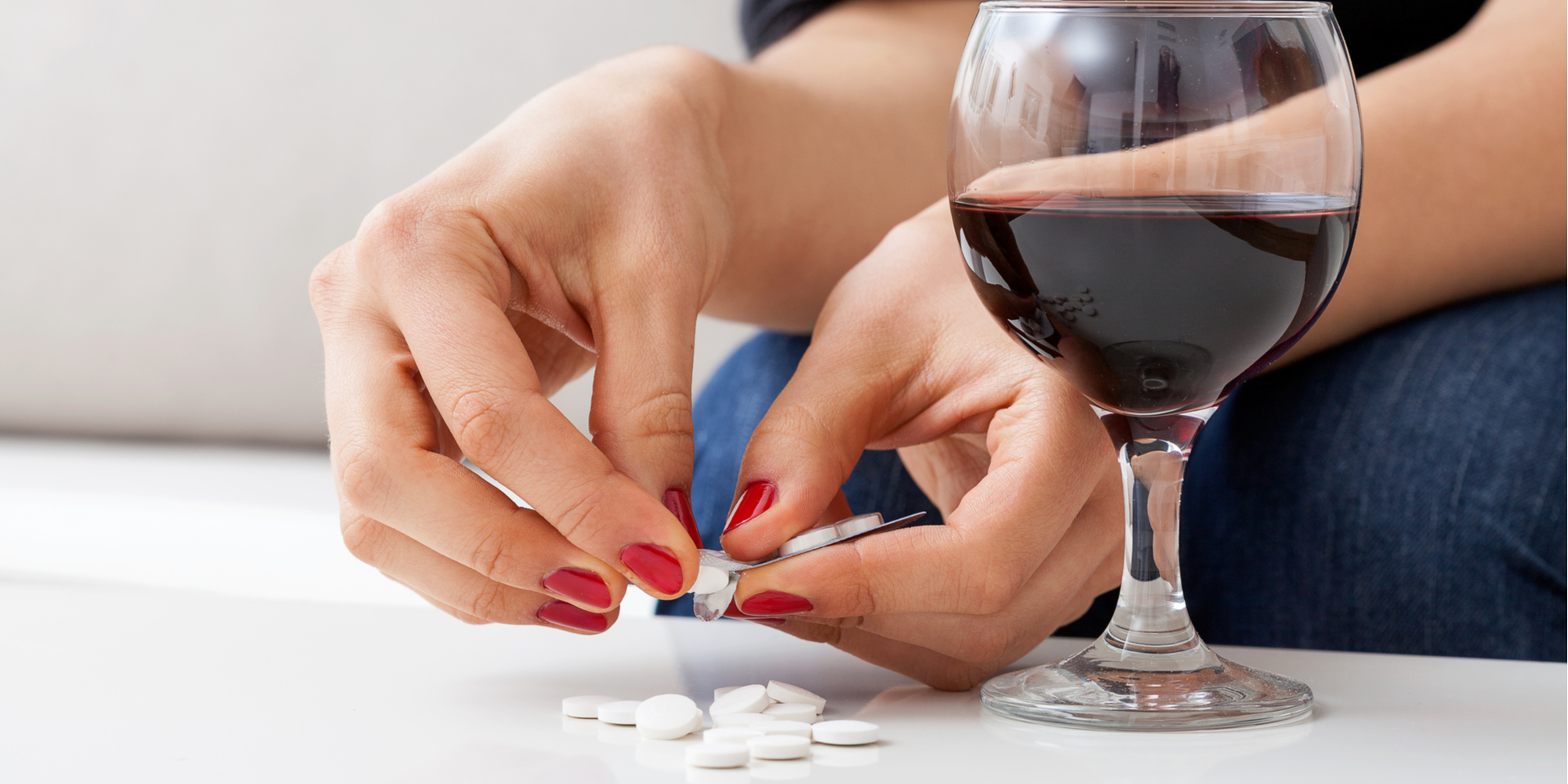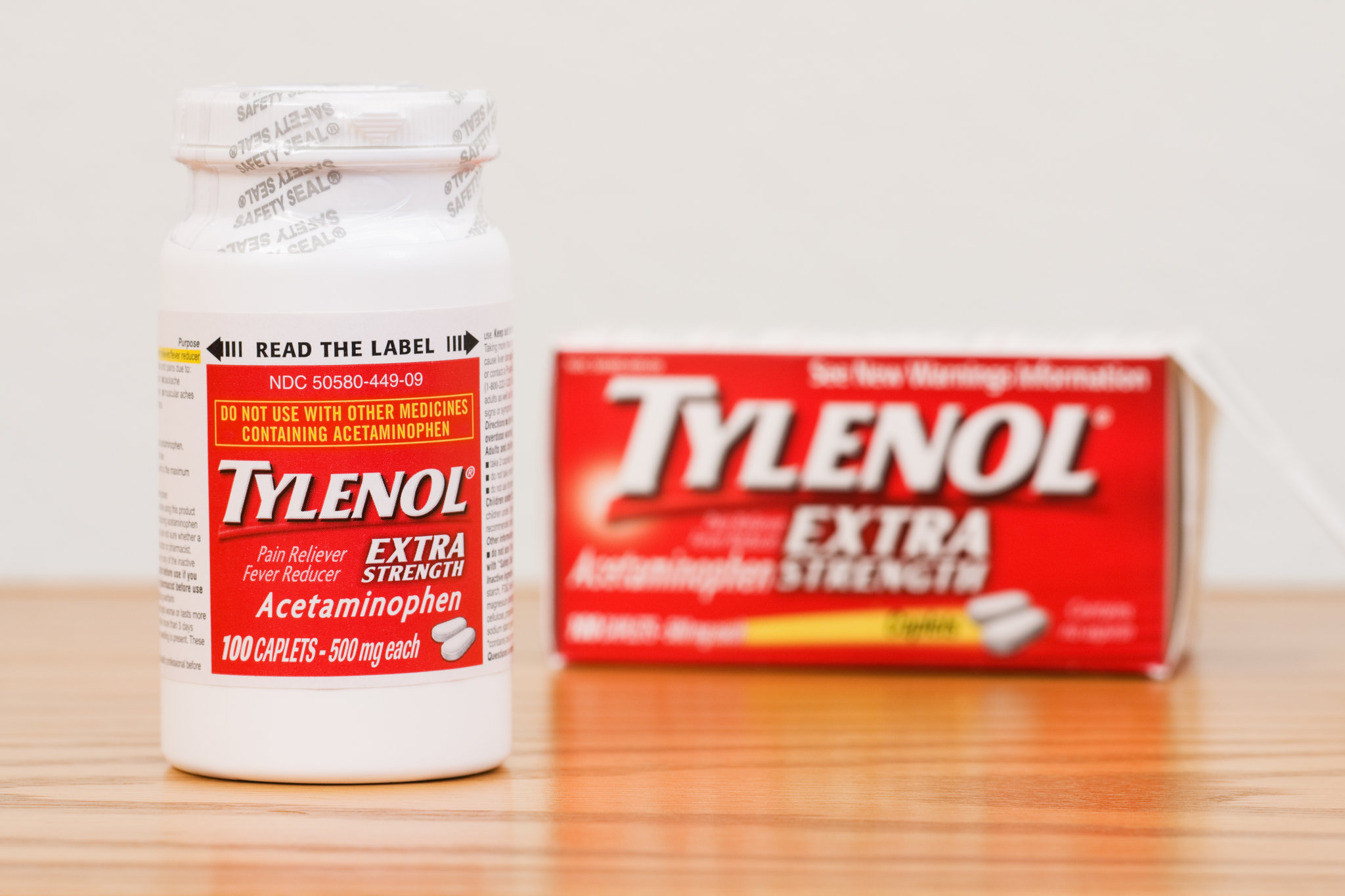Tylenol and alcohol can adversely affect the liver. If mixed, serious side effects can occur, including permanent liver damage.
Tylenol’s active ingredient, acetaminophen, is used in the treatment of fever and pain. The substance blocks prostaglandin production, chemicals associated with pain sensation. These also have a part in the elevation of body temp; however, fever is reduced, as is the pain when blocked.
Tylenol is among the most predominantly used and readily available pain solutions over the counter. When referring to Tylenol, the medicine in the brand, acetaminophen, is the genuine reference. Different variations of the Tylenol brand combine the medication acetaminophen along with other drugs for varied results.
Because of Tylenol and alcohol’s adverse effects on the liver, these are not meant to be taken in combination, nor should Tylenol be consumed while there is still evidence of alcohol in the body’s system.
It can take the liver time to recover despite the alcohol being entirely removed from the system. The safest protocol for taking Tylenol following an evening of drinking is to wait roughly 72 hours.
Table of Contents
ToggleAlcohol and Acetaminophen
It’s understood by most that alcohol has the potential to interact with medications, particularly pharmaceuticals. Many people have questions when it comes to over-the-counter medications like Tylenol and whether this product is safe to take when consuming alcoholic beverages, but most do so being uninformed.
Because alcohol can often result in a hangover, people believe Tylenol to be a pain solution for the accompanying headache. Sometimes individuals drink alcohol and use the medication to thwart a headache or assist with body aches or pains, inadvertently combining the two substances without recognizing the potential effects.
Mixing alcohol and acetaminophen can be dangerous when too much of either is consumed. It’s suggested that there be none of either in the system simultaneously since these have a negative impact on the liver individually and much worse when mixed.
How Long After Consuming Alcohol Should You Take Acetaminophen?

Tylenol should be avoided when alcohol is in your system. It’s difficult to predict the amount of time you should wait to take the medication following an evening of drinking because the amount of alcohol consumed will dictate how long it takes to leave the body. As a rule, most often, it can take roughly “12 hours” to eliminate most of the substance.
If the night of drinking could be construed as a binge episode, it could take as long as “24 hours” to be entirely removed. The liver needs to recover despite the alcohol being removed from the system, making it necessary to wait as long as “72 hours” before taking a Tylenol for optimum safety.
As far as taking the medication before drinking, the same effects can occur.
When a night of drinking is planned, it’s wise to avoid acetaminophen since the two will combine, as Tylenol won’t have time to leave your system.
While it would seem logical that a Tylenol would be the go-to for a hangover due to its pain-relieving capabilities, alcohol consumption excessive enough to create a hangover renders the combination unsafe for the liver.
The immediate potential pain-relief acetaminophen you might gain from the hangover is minute when compared to the potential damage that can occur within the liver.
Understanding The Risks Of Combining Alcohol And Tylenol
The risks that might result from combining alcohol with Tylenol can vary considerably depending on the amount of each consumed. How often you drink alcohol and the amount will also have a bearing on the potential risks.
An individual who indulges in “two or more regular alcoholic beverages each day could see a more significant risk for health consequences if Tylenol is introduced into the system. A “regular alcoholic beverage” is one that consists of only “14 grams of pure alcohol.” Following these standards, people can begin to understand the levels to which they are drinking.
For wine, beer, and varied spirits, the standard drink will be:
- A regular beer: 12 oz
- Malt liquor 8 – 9 oz
- Wine 5 oz
- Distilled spirits 1.5 oz (vodka, rum, whiskey, gin, and on)
Individuals who will find themselves at more significant risk when consuming Tylenol with alcohol still in their system include:
- A man who drinks more than what would constitute more than “three standard beverages in a day.”
- A woman who consumes more than what would constitute more than “two standard beverages in a day.”
- Binge drinking for either gender means you have more than a few standard beverages on one occasion.
The Effects Of Liver Damage
The liver processes alcohol, considered to be a toxin, in an effort to assist the system in eliminating it. Consumption of alcohol can damage the liver, especially with excessive use or in tremendous amounts. The liver also processes acetaminophen or Tylenol.
Generally, the organ isn’t challenged to process Tylenol in standard doses. However, chronic use or taking excessive amounts can create issues with the liver. Since each of these substances has the potential to harm the liver individually, the effects are magnified when these are in the system at the same time.
There is a finite capability to the liver’s chemical processing and two harsh substances that need eliminating simultaneously stress the organ, causing an accumulation of toxins that lead to permanent damage.
Conclusion
When an individual consumes alcohol infrequently and takes Tylenol according to the guidelines with merely one to two standard alcoholic drinks, there’s less chance for harmful results. That isn’t to say it’s safe. There is still the potential for adverse reactions even with this limited capacity especially given an individual’s specific characteristics.
If you’re underweight, of advanced age, and endure existing liver issues, these can lead to significant risks for developing long-term effects. The primary way to prevent risk is to avoid the combination altogether. When you drink, the suggestion is to wait for the substance to dissipate from your system roughly 72 hours later to be safe. When you take Tylenol, avoid alcohol.

I am a passionate beer connoisseur with a deep appreciation for the art and science of brewing. With years of experience tasting and evaluating various beers, I love to share my opinions and insights with others and I am always eager to engage in lively discussions about my favorite beverage.
















